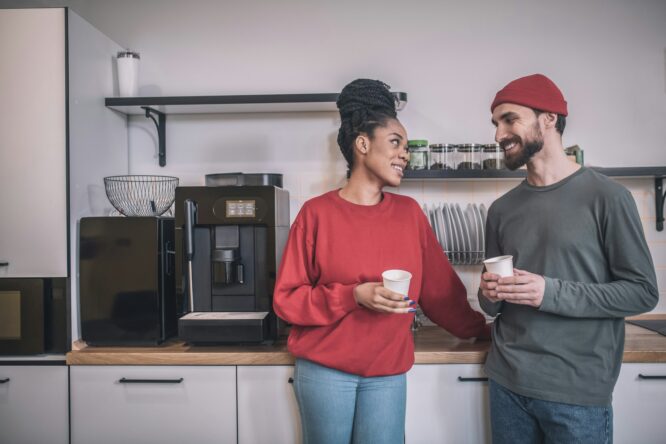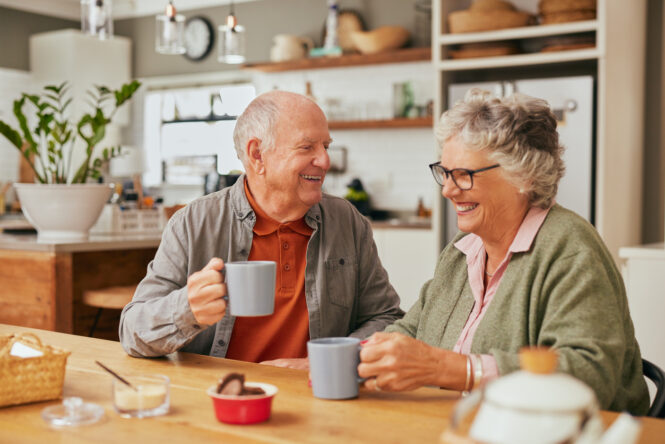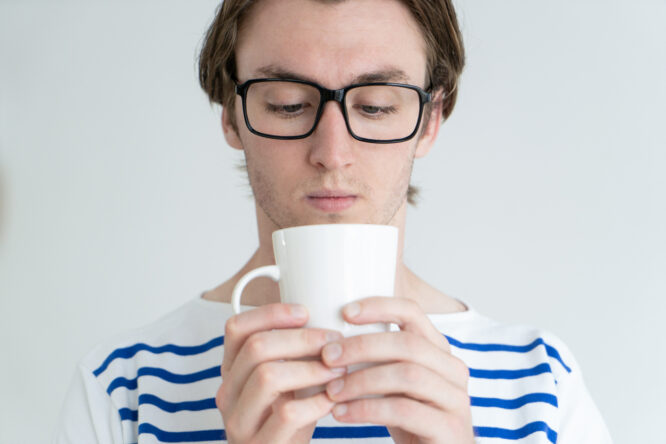Disliking tea as a Brit feels a bit like admitting you’ve never seen an episode of “Doctor Who”—not illegal, but definitely something people react to.

It’s not that you want to start a rebellion. You just don’t want to drink something that tastes like hot disappointment. Sadly, society doesn’t always make it that easy. Here are the awkward moments every tea-hating Brit knows all too well. Why do you feel like a criminal because you prefer coffee, or even a cold beverage instead?!
1. Being asked how you take your tea—and realising you’re about to ruin the vibe

Someone hands you a steaming mug with a warm smile, ready to bond over a shared national pastime. Instead, you’re about to hit them with the equivalent of a polite slap: “Oh, actually… I don’t drink tea.” Their face falls just slightly. Not enough to start an argument, but enough that you both feel the invisible crack in the social fabric. You smile apologetically. They hand you water like you’ve been ill.
2. Sitting through detailed debates about builders’ tea versus posh blends

There’s a whole language around tea—strong or weak, milk before or after, Earl Grey versus Yorkshire—and you’re just nodding like you’re fluent while mentally planning your next coffee order. You want to join in, but it’s like trying to fake your way through an intense sports conversation when you’ve never seen a match. You just pick a side at random and pray no one asks for your real opinion.
3. Enduring the full-body gasp when you admit it out loud

There’s no way to say “I don’t like tea” without causing at least one person to inhale sharply, clutch an imaginary strand of pearls, or jokingly accuse you of treason. It’s all in good humour, mostly. But part of you still feels like you’ve confessed a terrible secret, and now someone’s quietly questioning if you’re even really British.
4. Being offered alternatives that are somehow worse

Refuse tea, and you’re often met with a pitying scramble for backup options—usually lukewarm instant coffee, questionable herbal blends, or “there’s some squash if you want?” You end up awkwardly holding a drink you never wanted, sipping out of politeness, while wondering why rejecting one hot beverage feels like being banished from polite society altogether.
5. Feeling weirdly defensive around grandparents and older relatives

To many older Brits, refusing tea isn’t a preference—it’s a character flaw. It’s like telling them you don’t believe in umbrellas or Sunday roasts. It makes no logical sense, and they’ll never fully accept it. You sip your glass of water or coffee while your nan quietly shakes her head, convinced it’s a phase you’ll grow out of, like hating Brussels sprouts or listening to loud music.
6. Bracing for the jokes every single time

“Are you sure you’re British?” “Have you even got a passport?” “Next, you’ll tell us you don’t like crisps either!” The jokes are always lighthearted, but after the fiftieth time, you start rehearsing your fake laugh out of self-defence. It’s not that you’re offended—it’s that you’ve run out of witty comebacks. Now you just nod along, clutching your non-tea beverage like a tiny act of rebellion.
7. Panicking slightly at “Come round for a cuppa” invites

“Come round for a cuppa” is less an offer and more a cultural ritual. Saying yes without drinking tea feels like accepting a dance-off when you’ve never heard music before. You know you’ll have to awkwardly explain (again) that you’d love the company but will pass on the tea. And somehow, it always feels like you’re declining the whole friendship, even when you’re not.
8. Feeling out of place during tea rounds at work

Office tea rounds are practically sacred. Volunteering to make a round and then not taking one yourself feels shady, but accepting a tea you won’t drink feels worse. Eventually, you become “the weird one who doesn’t have tea,” standing by the kettle making six perfect mugs for everyone else while quietly sipping your water like a social outcast.
9. Being quietly suspicious of people who act personally hurt by it

Most people are chill. Some, however, react like you’ve insulted their family lineage. Their eyes narrow. Their voice tightens. They start listing every type of tea that exists to prove you simply haven’t found the right one yet. In that moment, you realise it’s not about tea. It’s about loyalty. You’ve unknowingly declared yourself a traitor to the national cause, and now trust must be rebuilt… slowly, and with many biscuits.
10. Getting trapped into endless “You just haven’t tried…” conversations

There’s always someone eager to fix you. “Have you tried Earl Grey?” “Maybe herbal?” “What about green tea?” “Maybe you just need sugar?” The list goes on, long after you’ve politely confirmed that yes, you have tried. Refusing tea becomes a strange social puzzle people feel compelled to solve, as if your dislike is a broken appliance they could fix if only they found the right settings.
11. Feeling secretly grateful when someone offers coffee without a fuss

When someone simply says, “Tea or coffee?” with no raised eyebrow, no heavy sigh, no look of betrayal—you could practically hug them. It’s like stumbling across an oasis after years in the desert. In those moments, you’re reminded that not everyone sees your lack of tea love as a personal affront. Some people just want you to have a warm drink and a good chat—and that’s the real British spirit anyway.
12. Silently celebrating every time you spot someone else declining tea too

It’s rare, but it happens: someone else politely refusing a cuppa. You exchange a tiny, knowing glance across the room. A silent acknowledgment. A brief, beautiful moment of solidarity. For a second, you’re not the only one quietly pushing against an unspoken cultural expectation. You’re just two non-tea drinkers in a sea of brews, and honestly, it feels like a small personal victory.
13. Accepting you’ll never fully escape the awkwardness, and making peace with it

No matter how kind or understanding people are, there’s always a tiny hitch of confusion or surprise when you refuse tea. And that’s okay. You don’t owe the world a perfect explanation every time. You’re British, you’re polite, you love a good natter—and you just happen to prefer something else in your cup. If anything, it proves that real Britishness isn’t about the drink at all. It’s about showing up, laughing it off, and staying true to yourself.




